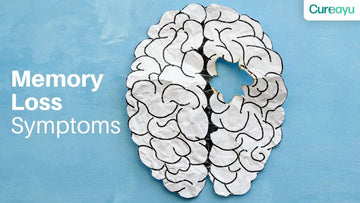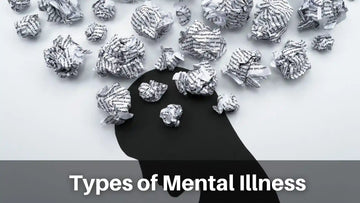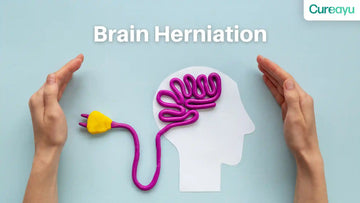Memory loss is a condition that affects people of all ages, although it is more common in older adults. It can significantly impact daily life, hindering a person’s ability to recall important information, navigate tasks, and engage in social interactions. Memory loss is not just a normal part of aging; it may indicate underlying health conditions. Understanding the symptoms, causes, and available treatments for memory loss is crucial for managing this condition effectively.
In this blog, we will explore the various types of memory problems, how memory loss symptoms manifest, potential causes, and steps you can take to prevent it. We will also delve into the available treatments to help individuals cope with and manage memory-related issues.
Also Read: Top 10 Tips To Maintain Your Mental Health and Achieve Mind Stability Naturally
What Is Memory Loss?
Memory loss, also known as amnesia, refers to the inability to remember information or events that would normally be stored in the brain. This condition can be temporary or permanent, and its severity can vary. Memory loss can occur due to a variety of reasons, ranging from simple aging to more complex neurological disorders like dementia.
Memory loss can manifest in many ways, such as forgetting recent conversations, misplacing everyday objects, or being unable to recall long-term memories. It is important to differentiate between occasional forgetfulness and persistent memory problems that interfere with daily life.
Different Types Of Memory Problems
-
Short-Term Memory Loss
Short-term memory refers to the ability to recall information over a short period, such as remembering a phone number for a few minutes or recalling where you left your keys. Short-term memory loss can occur due to stress, anxiety, or sleep deprivation but can also be a sign of more serious conditions like Alzheimer's disease. -
Long-Term Memory Loss
Long-term memory is responsible for recalling information over extended periods, from hours to years. When long-term memory is impaired, individuals may struggle to remember past events, recognize familiar faces, or even forget significant personal information, such as the names of family members. -
Working Memory Problems
Working memory is the ability to hold and manipulate information temporarily in the mind. A person with working memory issues may struggle with multitasking, organizing thoughts, or following a conversation. This type of memory loss can affect problem-solving skills and the ability to complete tasks. -
Procedural Memory Loss
Procedural memory is the memory responsible for recalling how to perform tasks and activities, like riding a bike or tying shoes. If a person loses their procedural memory, they may find it difficult to perform these routine tasks despite not having issues with other forms of memory.
Also Read: Understanding the Different Types of Headaches: Causes and Treatment Explained
Memory Loss Symptoms
-
Frequent Forgetfulness
Forgetting names, dates, or important details regularly is one of the most common symptoms of memory loss. A person might forget appointments, misplace everyday items, or struggle to remember what they were doing minutes ago. -
Difficulty in Learning New Information
If a person struggles to retain new information, it could indicate a memory issue. This can be frustrating, especially if learning new tasks or concepts is crucial for their personal or professional life. -
Confusion and Disorientation
Individuals with memory loss may experience confusion, such as getting lost in familiar places or forgetting where they are. Disorientation can also occur when they struggle to keep track of the time of day or day of the week. -
Difficulty with Decision-Making
Memory problems can make it hard for individuals to recall past decisions or experiences, leading to poor decision-making. They may find it difficult to choose between options or forget the reasons behind past choices. -
Personality Changes
Memory loss can affect the way a person interacts with others. They may become more anxious, depressed, or withdrawn, especially if they are struggling with memory-related frustrations. In some cases, memory problems are linked to mood disorders. -
Poor Concentration
Difficulty focusing and following through on tasks is another symptom of memory loss. The inability to pay attention to details can result in mistakes, forgetfulness, and a decrease in productivity.
Memory Loss Causes
-
Age-Related Changes
As people age, their brain undergoes natural changes that can affect memory. While mild forgetfulness is common, significant memory loss is not a guaranteed part of aging and may signal other health problems. -
Neurological Diseases
Conditions like Alzheimer's disease, Parkinson’s disease, and Huntington’s disease can cause significant memory loss. These diseases affect the brain's ability to function properly, leading to cognitive decline and memory impairments. -
Head Injuries
Traumatic brain injuries, such as concussions, can cause short-term or long-term memory loss. Severe head injuries can damage areas of the brain responsible for memory retention and recall. -
Mental Health Disorders
Anxiety, depression, and chronic stress can contribute to memory problems. Stress hormones can interfere with memory formation and retrieval, making it harder to retain information. -
Nutritional Deficiencies
Deficiencies in vitamins like B12 and folate can affect brain function and lead to memory issues. Proper nutrition is essential for maintaining cognitive health. -
Medications
Certain medications, especially sedatives, antidepressants, and anti-anxiety drugs, can have side effects that impact memory. Always consult a healthcare provider if memory problems arise after starting a new medication.
Also Read: Comprehensive Guide on Panic Attack Symptoms: Understanding, Causes, and Treatment Options
Prevention Tips for Memory Loss Diseases
-
Regular Exercise
Physical activity increases blood flow to the brain and helps maintain cognitive function. Regular exercise, such as walking, swimming, or yoga, can improve memory and reduce the risk of cognitive decline. -
Healthy Diet
A balanced diet rich in antioxidants, healthy fats, and vitamins supports brain health. Foods like leafy greens, berries, fish, and nuts are known to boost cognitive function and protect against memory loss. -
Mental Stimulation
Keeping your mind active by reading, solving puzzles, or learning new skills can help enhance memory. Mental challenges stimulate the brain and promote neural connections that support cognitive health. -
Adequate Sleep
Getting enough rest is crucial for memory consolidation. Sleep helps the brain process and store information, improving memory and cognitive function. -
Stress Management
Chronic stress can impair memory, so it’s important to manage stress effectively. Meditation, mindfulness, and relaxation exercises can help reduce stress and improve memory retention. -
Social Engagement
Staying socially active and maintaining strong relationships can help prevent cognitive decline. Social interaction stimulates the brain and improves mood, which supports better memory function.
Memory Loss Treatment
-
Cognitive Therapy
Cognitive therapy focuses on improving memory through exercises and mental tasks. Therapy can be tailored to individual needs, helping patients improve their cognitive skills and daily functioning. -
Medications
Certain medications can help improve memory in individuals with Alzheimer’s disease and other cognitive disorders. These drugs work by boosting neurotransmitter levels or protecting brain cells from damage. -
Lifestyle Changes
Making healthy lifestyle changes, such as adopting a nutritious diet, exercising regularly, and managing stress, can slow the progression of memory loss and improve overall brain health. -
Memory Aids
For individuals with mild memory loss, using memory aids like planners, alarms, and reminder apps can help keep track of important tasks and appointments, making daily life more manageable.
Also Read: The Different Types of Mental Illness: Symptoms, Causes, and Treatment Options
Conclusion
Memory loss is a challenging condition that can affect anyone, though it becomes more prevalent with age. Recognizing the symptoms early can help you seek the appropriate treatment and prevent further decline. While there are various causes of memory loss, making lifestyle changes, staying mentally and physically active, and seeking medical advice can go a long way in managing the condition. Remember that a healthy brain is a combination of proper nutrition, exercise, mental stimulation, and a stress-free environment. By taking proactive steps, you can support your memory health and continue to lead an active, fulfilling life.











